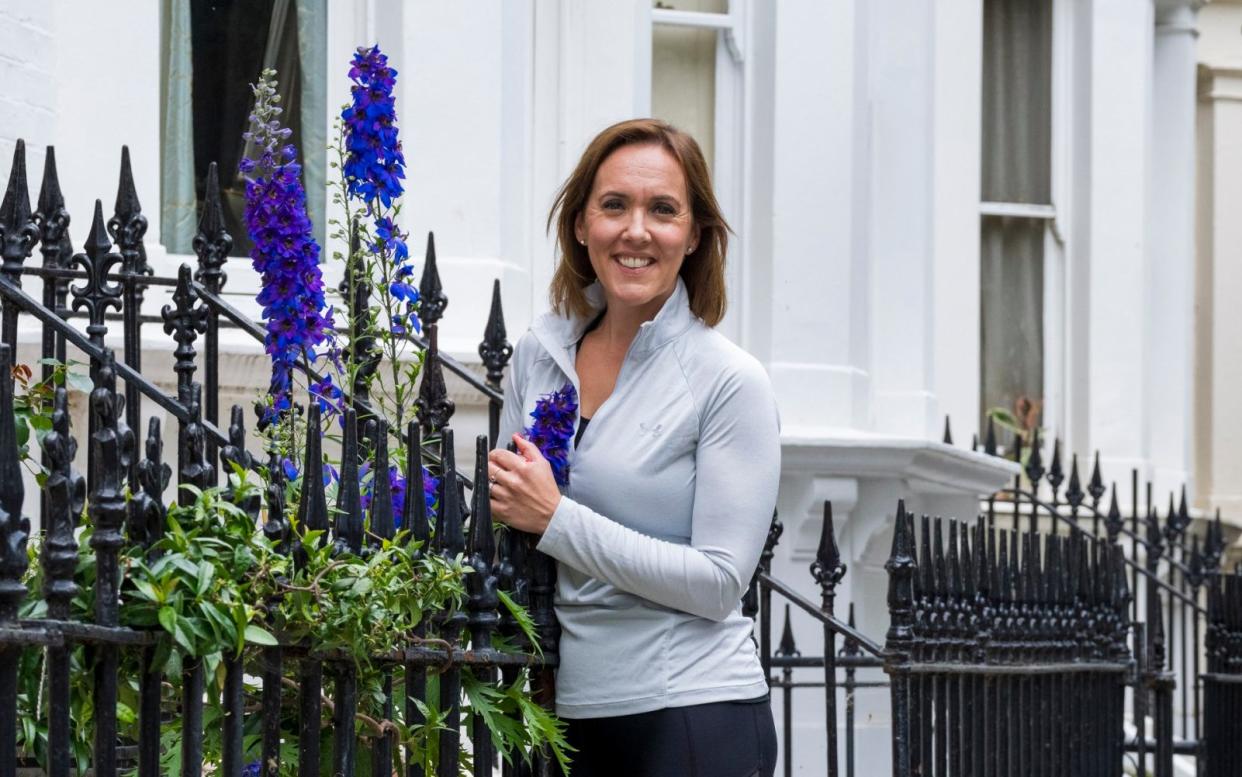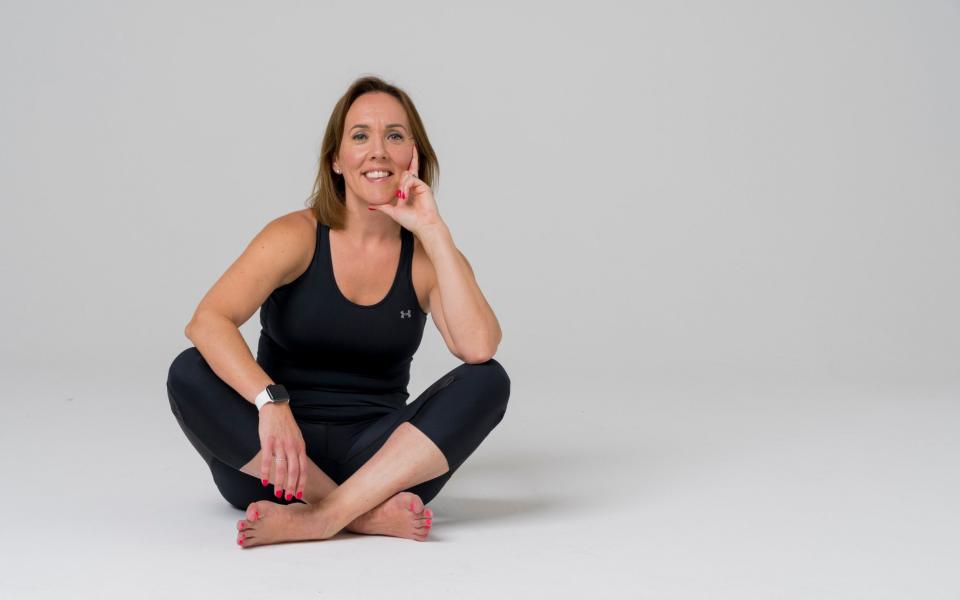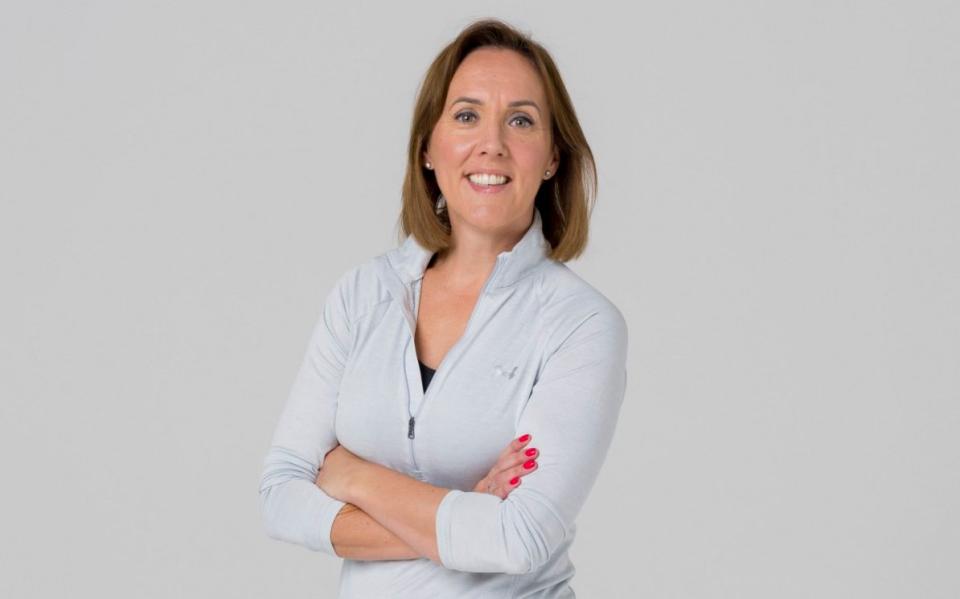I discovered my true age during a £2,600 health MOT

When the needle finally goes in and I am asked to slowly clench and unclench my fist, I start feeling something much bigger than the “quick scratch” I’ve been promised.
As multiple vials of blood are slowly extracted from my all too willing vein, the fear and regret suddenly start to overwhelm me.
In agreeing to undergo a comprehensive health MOT, I know I’m going to find out exactly what’s wrong with me and, more importantly, what might go wrong in the future.
But as I lie anxiously waiting for the phlebotomy to be over, I cannot help but question whether I really want to know that I’m one day likely to die from some ghastly cancer or heart-stopping cardiovascular disease. When it comes to how we meet our maker, surely ignorance is bliss?
Of course, a midlife MOT isn’t supposed to be this scary. In fact, they have become so commonplace that the Government recently announced that a DIY health check for the middle-aged to carry out in their own home will be rolled out from next spring. Patients will be invited to complete a health assessment on their phone or laptop, providing answers to questions about their weight, height, diet, alcohol intake and exercise.
A blood testing kit to check cholesterol levels will be sent to them and they will be asked to get a blood pressure reading at a pharmacy. After analysis, anyone with early signs of problems, such as diabetes or heart disease, will be offered help, including referrals to weight-loss clinics or medication. Fifteen million adults aged 40 to 74 across England will be eligible for the NHS’s new digital MOT – an extension of the face-to-face check-ups that are already available to 40-somethings at GP surgeries.
The Government believes each health check will save 20 minutes of NHS time, with cardiovascular disease now the second biggest killer in England, affecting around 6.4 million people, while a record five million Brits are living with diabetes, which raises the risk of stroke, heart attacks and heart failure.

Yet with record numbers of patients on waiting lists as the NHS marks its 75th anniversary this year, it’s hardly surprising that eight million Brits are now choosing to pay for private healthcare as an alternative to the overstretched NHS. It isn’t just a problem that more than half (54 per cent) of UK adults say they find it harder to speak to a GP today than before the pandemic. Huge delays in diagnostic testing on the NHS have also prompted growing numbers to go it alone. In April 2023, around 1.6 million people in England were waiting for a diagnostic test, twice as many as in January 2006 (0.8 million), when this dataset began.
People are also waiting longer for tests. Between the start of the pandemic and April 2023, the number of people waiting over six weeks for a diagnostic test rose from around 30,000 to 431,000 – a 14-fold increase.
And since research suggests that as many as one in four of us is at risk of developing at least one underlying health condition, it stands to reason that patients are trying to increase their chances of staying healthier for longer by better understanding and monitoring their own health data.
The advent of the smartphone, smart watch and other fitness tracker devices has made Brits more aware of their vital health statistics than ever before.
This has helped to spawn a lucrative new industry in “360” health screenings, identifying everything from common health conditions like diabetes and high cholesterol to whether you’re genetically predisposed to developing breast cancer or have a hereditary cardiac risk. Summed up by the BUPA slogan “take control, feel better”, the full-body MOTs are designed not only to gauge health and fitness but also to alert patients to any potential changes and ensure they don’t become a bigger problem than they need to be.
They’re intended to save the NHS money in the long term by shifting healthcare away from sickness management, towards a more proactive, preventative approach. But do they work? Or can health information overload actually cause more harm than good by bringing out the hypochondriac in us all?
To find out, I opted for one of the most comprehensive health MOTs money can buy – the Randox elite Signature package (£2,600) which measures 350 data points relating to key health areas including tumour markers and digestive health.
As well as testing my general health, sexual health and gut health, I also underwent genetic testing for a range of inherited conditions including cancer, cardiac problems and genetic haemochromatosis – and had my female hormones and fertility levels checked to find out if I am perimenopausal.
All that was required was a one-hour appointment at a clinic in central London where all my measurements were taken, along with multiple vials of blood and two urine samples. I was also given a home bowel test and handed in three samples the following week.
My initial results could not have been more positive. After being weighed, measured and standing on a machine that evaluated my body fat to muscle ratio, I was deemed to have a metabolic age of 29 – not too shabby for a 45-year-old. It seems all that walking and weightlifting has done some good, despite the associated aches and pains.
The full report, however, which I received less than a week later, didn’t paint quite such a rosy picture. Being a fit and healthy sort who exercises regularly, doesn’t smoke, drink or do drugs, I was expecting a clean bill of health. But when the results came back, only 87 per cent of my markers were “within range”, with 13 per cent red flagged for “significant abnormalities that require medical intervention and/or further investigation.”
My white blood cell count was too low, as were my glucose levels, copper and immune system proteins. Meanwhile my LDL (bad) cholesterol was a little too high, and my fatty acid binding protein (whatever that is) was through the roof. I also had way too much zinc in my system, some problem with my vitamin B12 absorption and Epstein-Barr antibodies coursing through my veins. (Had I ever had glandular fever? Not that I knew of.)

On the plus side, I didn’t have coeliac disease or lactose intolerance, my ECG was normal, I wasn’t anywhere near perimenopausal nor did I have any STDs. And, most crucially, I showed no predisposition to cancer or cardiac disease, although I do carry the gene for haemochromatosis [a build-up of iron levels in the body] – which is only a problem for my three children if my husband also carries the gene, and even then they only have a one in four chance of developing it, according to the genetic counsellor who talked me through the results.
With some markers also pointing to inflammatory bowel disease (Crohn’s disease and colitis), should I be unduly worried?
An hour-long chat with one of Randox’s GPs was enough to put my mind at rest. Like a medical detective scouring for clues, he managed to establish that my glucose levels were low, which had had an impact on some of my kidney function tests, because I hadn’t read the instructions properly and had avoided food and water for 16 hours before the test – when I should have continued to drink water throughout. Doh!
The reason my zinc levels were so high, which also had a knock-on effect on some of my other results, including my B12 absorption, was because I had been inadvertently doubling up on vitamin tablets.
Why was I taking so many vitamins when I already had a varied diet? Unable to answer, I resolved to ditch all my pills except Omega 3 and vitamin B complex.
The bowel sample red flags also had a plausible explanation: I had recently suffered from chronic food poisoning after going to an Elton John gig at the O2.
Being a little under the weather the week previously probably explained my lower white blood cell count, while my fondness for eggs appeared to account for the slightly raised LDL cholesterol, which wasn’t too much of a problem as my HDL (good) cholesterol and total cholesterol/HDL cholesterol ratio are “desirable”, apparently.
Told I had a less than 10 per cent risk of developing cardiovascular disease over the next 10 years and judged to have a minimal chance of developing diabetes or metabolic syndrome, I ended the conversation feeling relatively positive.
I will be reassessed in six months, when I hope some of the largely self-inflicted anomalies will disappear.
Having gone into the process fearing it would turn me into Howard Hughes (the multi-millionaire aviator famed for his fear of sickness) actually the experience left me feeling that knowledge is power. The whole point of health MOTs is to give patients the tools and knowledge they need to take control of their own wellbeing rather than leaving things to chance.
Instead of storing up problems for the NHS later in life, I’ve identified any potential glitches in the matrix and can now take preventative measures.
They say health is wealth but I appreciate not everyone can afford to spend £2,600 on a private MOT. But if the NHS is going to start offering these sorts of tests, then the over-40s would be wise to take a look under the bonnet. We service our cars every year, so why not our bodies?
For more information about the Signature test visit www.randoxhealth.com


